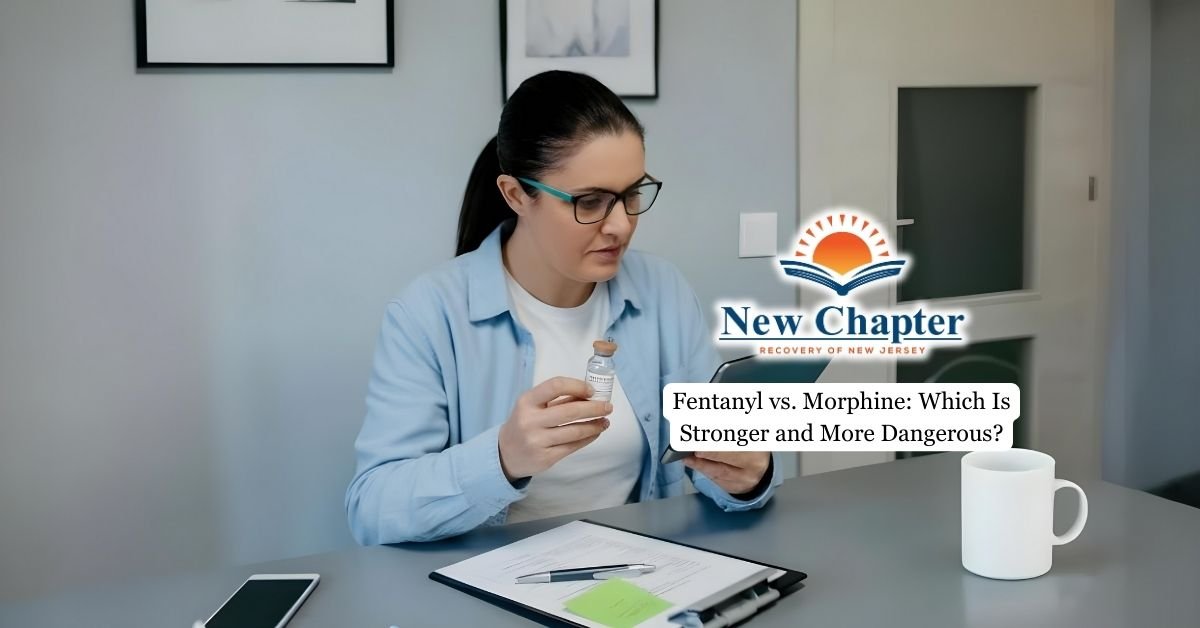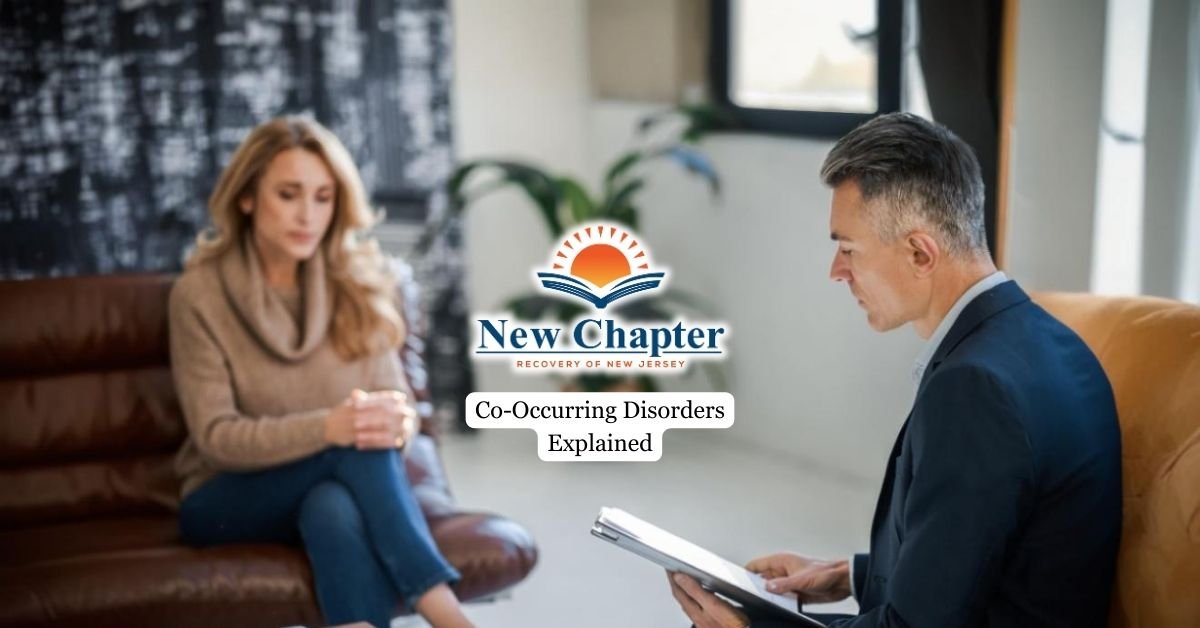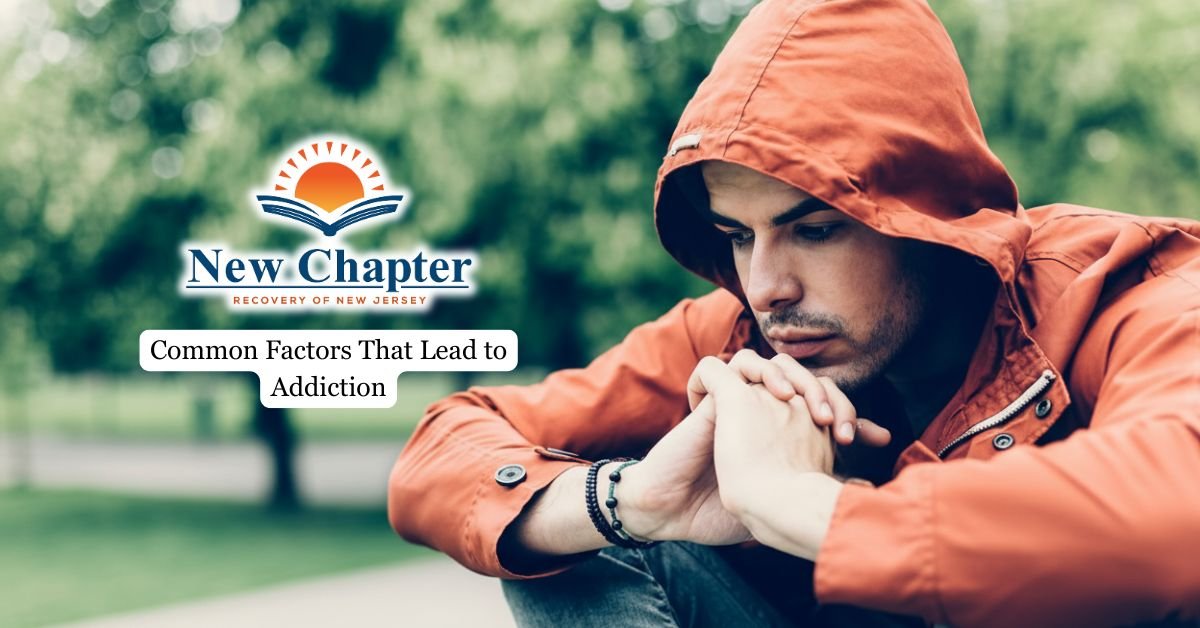Co-occurring disorders often create a tangled web of challenges that affect both mental health and substance use in ways that are deeply intertwined. When these issues overlap, they can affect how a person feels, thinks, and behaves, making everyday life more complicated and treatment more demanding. The push and pull between these conditions often leads to a cycle where one exacerbates the other, making it essential to address them together rather than separately.
This article delves deeper into what co-occurring disorders are, their symptoms and causes, and how to manage them.

What Are Co-Occurring Disorders?
When someone has both a mental illness and a substance use disorder (SUD), they are living with co-occurring disorders. This is more common than many realize, research estimates that roughly half of individuals with an SUD also have a concurrent mental health condition.
The relationship between these two conditions is not one-directional. For some, psychological struggles may lead to self-medication with alcohol or drugs. For others, prolonged drug abuse alters brain chemistry, triggering or worsening emotional well-being. This creates a cycle where both conditions feed into one another, making it difficult to know where one ends and the other begins.
Here are some of the common psychological challenges that are linked to substance abuse:
Depression
Depression is one of the most frequent co-occurring disorders seen in dual diagnosis cases. Many individuals have opioid and alcohol use disorder in an attempt to numb persistent feelings of sadness or hopelessness. While this may provide short-term relief, misuse of drugs ultimately worsens depressive symptoms and increases the risk of relapse.
Anxiety Disorders
Alcohol, benzodiazepines, or other drugs may initially seem to reduce worry, fear, or panic, but over time, they disrupt brain chemistry and heighten anxiety. This cycle can make recovery particularly difficult unless both conditions are treated together.
PTSD
Post-traumatic stress disorder (PTSD) frequently co-occurs with addiction. Individuals living with trauma may use alcohol and illicit drugs to block intrusive memories, numb emotional pain, or reduce hyperarousal. Unfortunately, substance use can intensify PTSD symptoms, reinforcing the cycle of dependence.
Bipolar Disorder
Bipolar disorder often intersects with SUDs due to its intense mood swings. During manic phases, impulsive decisions may lead to risky drug abuse, while depressive phases may drive self-medication to cope with low mood and energy. This combination can make both conditions harder to manage without integrated care.
Psychotic Disorders
Psychotic disorders, such as schizophrenia, schizoaffective disorder, or brief psychotic disorder, are often linked to addiction. Drugs like cannabis, methamphetamine, and hallucinogens can trigger or worsen psychotic symptoms, including hallucinations, delusions, and disorganized thinking. At the same time, individuals with psychosis may turn to drugs or alcohol as a way to cope with distressing symptoms, creating a dangerous cycle.
Personality Disorders
Personality disorders, including borderline personality disorder (BPD), antisocial personality disorder (ASPD), and narcissistic personality disorder (NPD), frequently occur alongside drug and alcohol addiction. Traits such as impulsivity, emotional dysregulation, and unstable relationships can increase vulnerability to addiction, while long-term substance use can intensify these patterns of behavior.
Dual Diagnosis Symptoms
Symptoms of dual diagnosis may vary and overlap, making early discovery challenging.
Common signs include:
- Mood swings, anxiety, or depression alongside cravings or withdrawal symptoms
- Difficulty managing emotions or stress
- Social withdrawal or isolation
- Increased risk-taking or impulsive behaviors
- Sleep disturbances such as insomnia or hypersomnia
- Confusion about whether symptoms are caused by mental disorder, drug abuse, or both
Because each disorder fuels the other, symptoms tend to be more severe than if someone were experiencing only one condition. For example, poor sleep caused by substance misuse can worsen mood instability, while untreated depression can increase cravings and relapse risk.
In these situations, dual diagnosis treatment provides a structured and integrated approach that addresses both conditions simultaneously, helping individuals find stability and reduce the likelihood of relapse.
What Causes Co-Occurring Disorders?
There is no single cause of co-occurring disorders, but several interconnected factors increase risk. Genetics plays a role, as individuals with a family history of psychological issues or addiction are more vulnerable. Environmental influences, such as early exposure to trauma, chronic stress, or growing up in a home where substance use was common, also heighten susceptibility.

The brain itself is central to understanding co-occurring disorders. Substances like alcohol, opioids, or stimulants alter neural pathways involved in reward, stress response, and emotional regulation. These changes impair the prefrontal cortex, the part of the brain that governs decision-making and impulse control, while overstimulating the amygdala, which regulates fear and emotional reactivity.
This imbalance increases the risk of both addictive behaviors and psychiatric symptoms. Similarly, mental health conditions such as depression or PTSD already involve disruptions in neurotransmitters like serotonin, dopamine, and GABA. Introducing drugs into this already fragile system compounds the imbalance, making recovery more complicated.
How to Manage Co-Occurring Disorders
Effective treatment requires an integrated treatment approach, addressing both conditions at the same time rather than treating them separately. Approaches include:
- Integrated Treatment: Combining mental health counseling with addiction treatment for better outcomes.
- Medication Management: Using medications to stabilize mood and manage cravings or withdrawal symptoms.
- Behavioral Therapies: Cognitive Behavioral Therapy (CBT), Dialectical Behavior Therapy (DBT), and trauma-informed care help rewire unhealthy thought patterns.
- Support Groups: Peer-based groups tailored for individuals facing both psychological and substance abuse challenges.
- Holistic Approaches: Mindfulness, exercise, and proper nutrition support brain healing, regulate sleep, and reduce relapse risk.
- Care Coordination: Collaboration among medical, mental health, and addiction specialists ensures comprehensive care.
How to Help People with Co-Occurring Disorders
Supporting someone with co-occurring disorders requires patience, understanding, and education. Families can begin by learning about the nature of dual diagnosis and recognizing that recovery is often non-linear. Encouraging loved ones to seek professional help is important, as specialized care is necessary to address the intertwined challenges of mental illness and addiction.
At the same time, small lifestyle changes make a difference. Encouraging healthy routines, such as consistent sleep, physical activity, and balanced nutrition, can stabilize mood and improve long-term recovery outcomes. Participating in family therapy or groups like Al-Anon can provide caregivers with tools to set boundaries while maintaining empathy. Most importantly, loved ones can help by remaining patient, non-judgmental, and supportive, reminding the individual that healing is possible even when setbacks occur.
Final Thoughts from New Chapter Recovery
Co-occurring disorders highlight the intricate link between mental health and substance use, showing how one condition can intensify the other. Understanding the science behind these disorders underscores the importance of treating both issues together. With integrated care, individuals can begin to break the cycle, regain balance, and build the skills needed for long-term stability.
At New Chapter Recovery, we offer dual diagnosis treatment in New Jersey designed to address both mental health challenges and SUDs at the same time. Our comprehensive approach combines evidence-based therapies, medication support, and holistic practices to promote whole-person healing. We work with a compassionate team that understands the complexity of co-occurring disorders, so clients can take meaningful steps toward recovery and a renewed quality of life.






